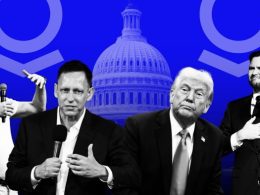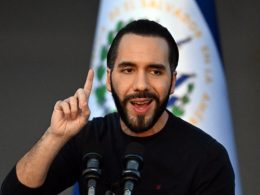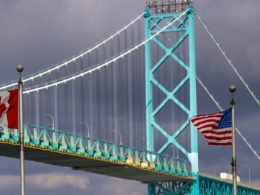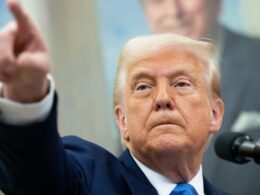Stay informed with free updates
Simply sign up to the Global Economy myFT Digest — delivered directly to your inbox.
The European Central Bank faces an economic environment in which “some of the worst-case scenarios that we had identified are materialising”, according to José Luis Escrivá, governor of the Bank of Spain and a member of the ECB’s governing council.
Speaking to the Financial Times ahead of the bank’s rate decision next week, Escrivá warned that tariffs imposed by Donald Trump were triggering a “very significant negative shock on economic activity”.
He suggested US policies could bring into question the dollar’s status as a reserve currency and haven.
Escrivá said the precise fallout from the sweeping measures, including high so-called reciprocal tariffs that took effect on Wednesday, was “still uncertain”, adding that monetary policymakers were “monitoring it closely”.
Spain’s top central banker — who took charge last September after serving as a minister in the Socialist-led government following a previous career in economics — stressed that the impact on inflation in the euro area “will depend, among other factors, on the European response in terms of trade retaliation and, possibly, in terms of a more expansionary fiscal policy”.
Germany last month loosened its strict fiscal rules to allow for higher borrowing to fund defence spending and infrastructure investment, and the EU is also creating more leeway for debt-funded military spending.
Investors and analysts are now all but certain the ECB will cut interest rates for the seventh time since June to 2.25 per cent on April 17, having expected a potential pause before Trump’s far-reaching tariff announcements on April 2. Escrivá declined to comment on his view ahead of the meeting.
Bundesbank president Joachim Nagel, another hawkish voice, said on Tuesday that the ECB would “do its bit” to strengthen the currency area’s “resilience” in the current financial turmoil, noting that inflation was on track to meet the central bank’s medium-term 2 per cent target.
Escrivá suggested international investors might reassess the role of the US dollar. He argued that multilateral agreements and rules that promoted trade flows underpinned the “central role” of “the US economy, the US dollar and US financial markets” in recent decades.
“Economic agents and authorities everywhere are now reassessing what the latest US policies mean for many of those elements, and there are reasons to doubt that some of them will continue to play such a relevant global role in the future,” he said.
Escrivá suggested the euro could emerge as a more attractive alternative. “We can offer a very large economic area and a solid currency, which benefit from the stability and predictability which result from sound economic policies and the rule of law.”
On Wednesday, Escrivá told Spanish television the central bank would revise down its growth forecast for the Spanish economy this year, which currently stands at 2.7 per cent.
Spain’s top central banker said that the dramatic declines in global equity markets since early April had been “a test to the resilience of the financial system globally”, but added that “for the time being” markets were functioning in an “orderly” manner, confirming the “impression that the system now is far more resilient than it used to be”.
Additional reporting by Barney Jopson in Madrid
Source link









